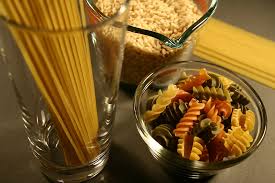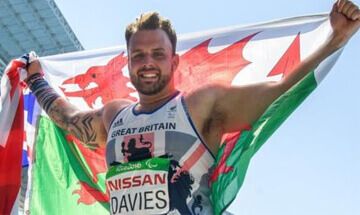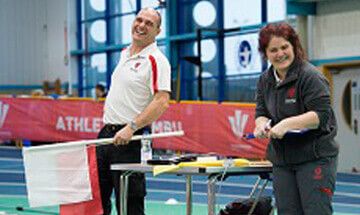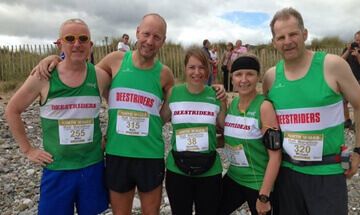
Development and Performance
Carbo loading for Marathons
Carb loading for your marathon – a quick guide
Your training is on schedule, you’ve done some longer runs and worked out your mid-race fuelling. Now is the perfect time to plan how you’ll carb load in the 48 hours before your marathon begins.
Hilary Wickett,
Lecturer on MSc Nutrition for Sport and Exercise at Cardiff Metropolitan University and a Registered Dietitian and Graduate Registrant on the Sport and Exercise Nutrition register.
The information in this guide is general information for recreational marathon runners. For personalised dietary advice taking into account your individual health status and needs, consult a healthcare professional registered with the Sport and Exercise Nutrition Register
What is carb loading?
Carbohydrates are the muscles preferred energy source. Carbohydrates consumed during the two days before are stored as glycogen ready to fuel the 26.2 miles ahead. We prepare for a long car journey by ensuring we have a full petrol tank, similarly it’s best to start a marathon with full glycogen stores to avoid our muscle ‘fuel tank’ running on empty. Research shows that full glycogen stores, maximises muscle power to help us run for longer.
Carb loading is the strategy for eating and drinking more carbohydrate than normal for the 48 hours before a marathon. An analogy would be a backpacker preparing their rucksack before a month long trip; they ensure every inch of space is filled, tucking socks into shoes and tightly rolling t-shirts into corners. In the same way, carb loading enables you to start the marathon with the maximum amount of muscle energy tucked away.
 Which type of carbs?
Which type of carbs?
High fibre carbs are perfect for long-term health but research shows that low fibre, low fat options are ideal for carb loading before a marathon. Avoiding high fibre and high fat options aids digestion and means you can eat the large volume required without feeling too full. So swap your usual wholemeal bread for white, brown pasta for white pasta and weetabix for cornflakes.
How much carbs?
The bigger the person, the more carbohydrate it will take to fill your glycogen stores. Current recommendations are 10g carbohydrate per kg body weight per day (range 7-12g/kg). So a 60kg person would need 600g/day, a 70kg person would need 700g/day etc. In a nutshell you’ll need to eat 3 meals and 3 snacks, often foods you already eat but choosing low fibre and bigger portions. There are two examples at the bottom.
Won’t I feel bloated with all that food?
Choosing low fibre options makes it easier to digest your food but runners sometimes say they feel ‘heavier’ when they’ve carb loaded. The science shows that glycogen is stored alongside water, so carb loading often comes with an additional 1-2kg extra body weight. Research shows that the benefit of full glycogen stores outweighs the demands of carrying the extra body weight. However people vary, so do ensure you practice carb loading on your longer practice runs before marathon day. Carb loading for a practice run will help you know what fuller muscle glycogen stores feels like, so you can adjust your strategy to suit.
What should I eat the morning of the marathon?
Your glycogen stores will benefit from an extra carb ‘top up’ on marathon morning following your overnight fast while you’ve been asleep. The recommendation is 1-4g carbohydrate per kg body weight, consumed 1-4 hours before the marathon starts. So for Lucy weighing 60kg, this would be a breakfast of either 60, 120, 180 or 240g carbohydrate. The wide variation allows you to adjust to fit your preferences and how your gut feels. The table at below illustrates what this could look like for Lucy;
|
|
60g carbohydrate |
120g carbohydrate |
180g carbohydrate |
240g carbohydrate |
|
Cornflakes/rice krispies with 1% milk |
30g cereal with 200ml milk |
50g cereal with 200ml milk |
50g cereal with 200ml milk |
70g with 250ml milk |
|
White toast with jam/honey |
- |
1 medium slice |
2 medium slices |
3 thick slices |
|
Low fat yoghurt |
- |
- |
150g |
150g |
|
Banana |
1 medium |
1 medium |
1 large |
1 large |
|
Fruit juice |
- |
160ml |
250ml |
250ml |
In conclusion, carb loading can help fuel your marathon. Experiment and practice your fuelling strategy before race day to ensure that you start your race with a nutrition plan to fuel you right to the very last step of those 26.2miles.
|
|
2 days before |
1 day before |
|
Breakfast |
|
|
|
Snack |
Low fat yoghurt |
Cheese oatcakes (6) and grapes (15) |
|
Lunch |
|
|
|
Snack |
|
|
|
Main meal |
|
|
|
Snack |
Rice krispies (45g) with 1% milk
|
|
|
|
2 days before |
1 day before |
|
Breakfast |
|
|
|
Snack |
Large banana |
Mixed nuts and raisins (100g) |
|
Lunch |
|
|
|
Snack |
|
|
|
Main meal |
|
|
|
Snack |
Jam on white toast (2 slices) Hot chocolate made with 200ml 1% milk |
Hot chocolate made with 200ml 1% milk, Ginger nut biscuits (4) |
Featured links
Useful pages within this section you may like to consider visiting.


